Games you missed: The Witcher
By raddevon 5 Comments
The Witcher is a PC RPG. It was developed in Eastern Europe. Those two traits taken together have a pronounced stigma. Games developed in this part of the world (particularly PC games) are thought to be buggy, unfinished, or broken despite some inevitable interesting ideas. Spoken dialog will, most likely, be awkward and poorly done. Crashes are expected. The Witcher is often lumped with other games and scoffed at by most gamers. There are always players willing to put up with the problems of any game to find the deeply buried redeeming qualities. Developers of these types of games have their own band of cheerleaders willing to overlook or downplay seemingly any faults. Therefore, it's easy for the average gamer to write off the praise The Witcher has garnered as the same sort of sentiment some players feel for other seriously flawed games. The Witcher needs none of that. The Witcher is a gem of a game combining the polish of big-budget US developed RPGs (I'm looking at you, BioWare.) while presenting a slightly darker, more mature story than those counterparts.

Geralt is a witcher, a phenomenon described best by someone else (I don't recall who.) as a dark medieval version of a Jedi. He has the strength of many mortal men and commands magical powers. Geralt is a very nuanced character and much of that nuance is up to the player with a refreshing lack of contrivance like the prescribed morality of recent games like inFAMOUS, and, to a lesser extent, Mass Effect 2. What I mean is this: those games give you choices, but the game already knows which choice is the good choice and which is the bad choice. This allows the game to shape outcomes of events based on whether you are basically good or basically evil. It makes sense in the context of a game. The Witcher, however, emulates the Dragon Age approach giving you multiple choices, each with consequences, none being clearly "good" or "evil." In fact, the word "emulates" is a terrible choice here as the game pre-dates BioWare's epic by more than two years.
Just as I claim this game doesn't have the caveats of those other wacky PC games, I must say the game does have its own caveats although they are few and minor. The edition you will be buying if you should buy today is the enhanced edition which includes additional animation and corrected translations. This edition fixed some problems people had with the dialog in the original version. In its current incarnation, the dialog is not up to the standard of something like Uncharted 2, but it is more than serviceable. The voice actor playing the part of Geralt is excellent and has an appropriate soft-spoken gravelly quality. The biggest problem I have had with the game is the opening sequence. It is something of a tutorial in a confined area which is a very poor representation of the game which lies ahead. After an hour or two of being stuck in this small area, having your hand held everywhere you go leading you from one quest into another, the game sets you free into a much larger play area. The entire world is not open a la the Bethesda games, but describing the area as "open" is not inaccurate. You will receive both story quests and side-quests which you may complete at your leisure while within that area. Later, the game will move you into another large area. The game has proceeded like that through the first three chapters and appears to be continuing along that path. I am currently about to move on and have been told by an NPC that I should finish anything I want in this area before moving on as I may be unable to return.
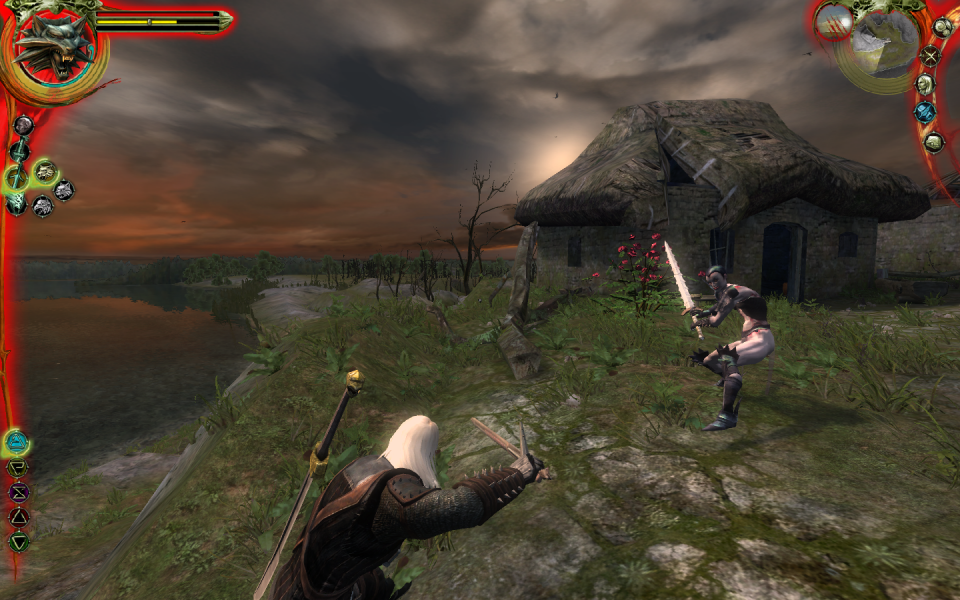
Having played Dragon Age, the game is quite refreshing. It doesn't need to maintain a strict battle/story rhythm. It's content to let me spend half an hour talking with town bigwigs trying to feel my way through the political climate of the area. The story is excellent making this approach very successful. When combat does occur, it feels gimmicky early. The physical attacks are based on a rhythm. If you initiate each attack in the sequence with proper timing, you will continue the combo allowing you to perform the bigger hits later in the combo. Later, you'll start picking up new "signs" (the game's spells) and recipes to make the battles a bit more interesting. For the most part, combat is quick and doesn't get in the way of the real meat of the game.
I have logged 30 hours in the game right now and have no plans of slowing down. The game is paced perfectly for a working person like myself. I can sit down with the game for 30 minutes to an hour a couple of nights a week and have an intensely satisfying experience in which I have advanced my character and some sub-plots by doing a couple of side missions in addition to advancing the main story of the game slightly. The pacing complements that nicely.
What can I write about The Witcher which hasn't been written, and why would I write it now? This is simply stale, right? That might be true if not for a fantastic sale at GamersGate where the game is on offer for $6.78! This is no sponsored post nor am I earning any sort of commission. I picked the game back up a couple of months back after two false starts where I quit before finishing the tutorial and thought this the perfect opportunity to pass this gem on to you, dear reader. If you buy the game and enjoy it, please keep your eyes peeled because information has been trickling out about The Witcher 2 since the big reveal at E3. The developer has coded their own engine rather than repurposing an old BioWare engine as they did for the first game. Even though the repurposing worked remarkably well, this should allow them to edge closer to their vision.
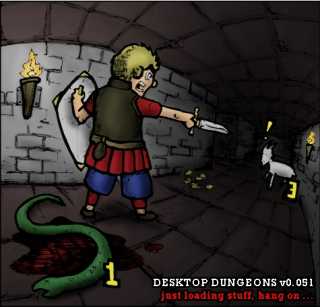

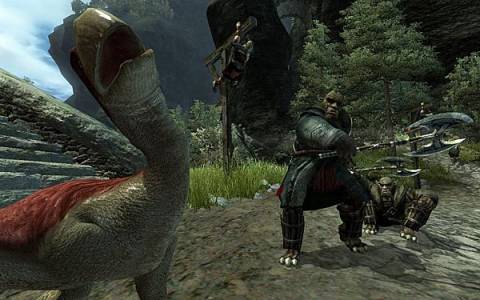
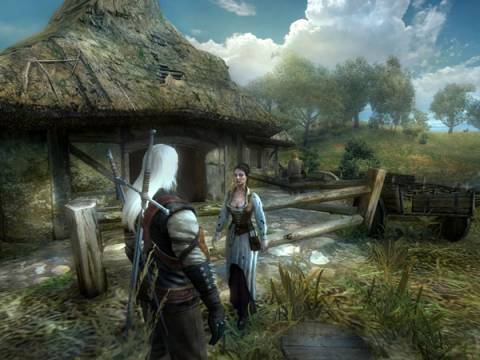
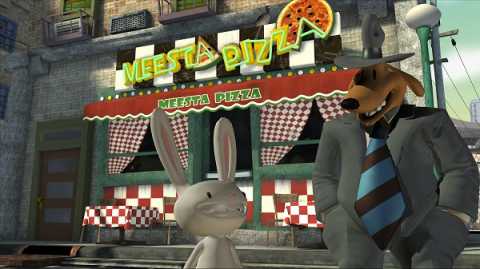
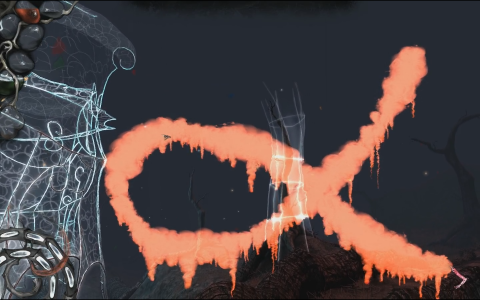





Log in to comment